Wrap Yourself in Responsibility: Choosing Sustainable Alternatives to Acrylic Sweaters
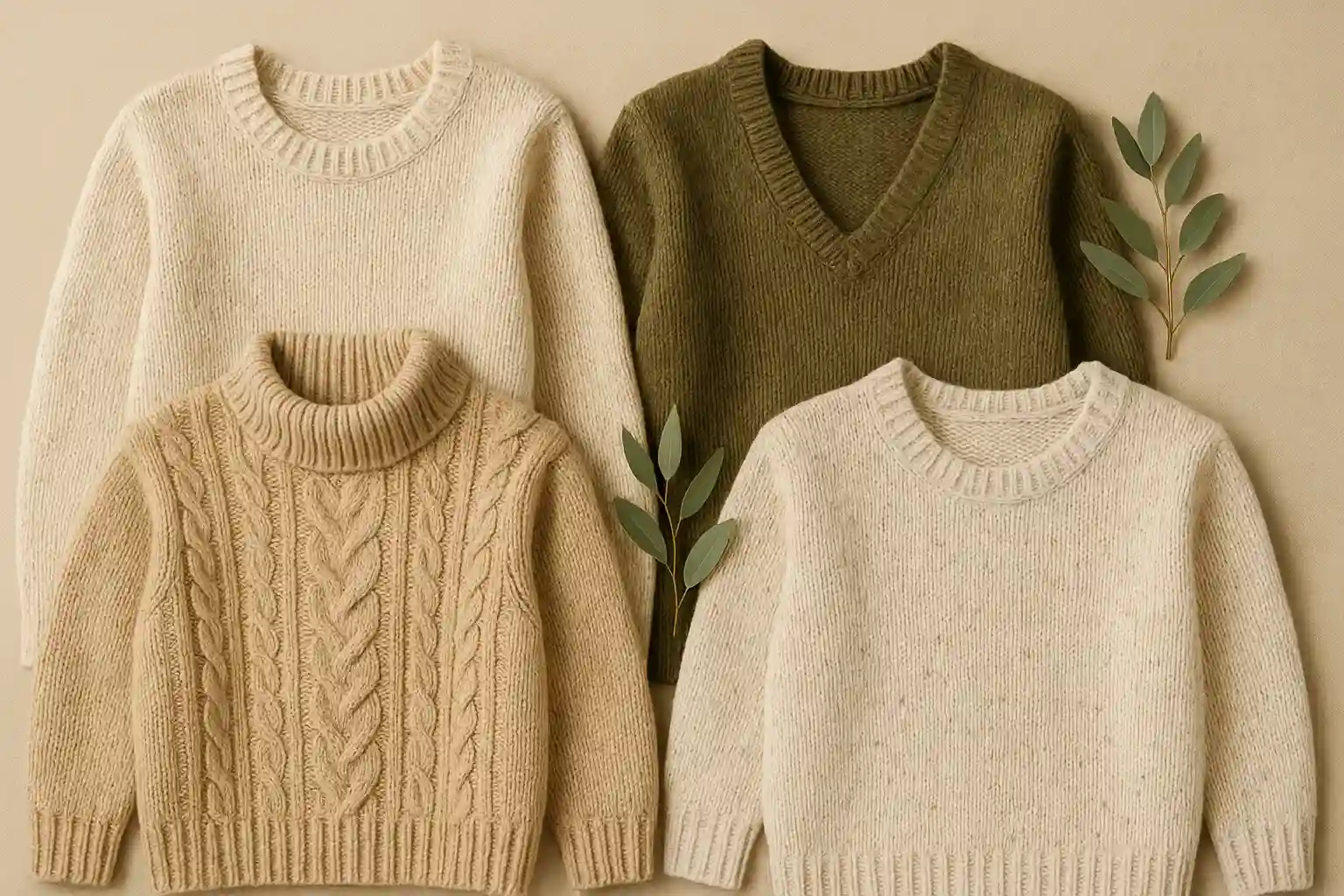
The cozy embrace of a sweater is a welcome comfort, especially during cooler seasons. While acrylic sweaters are often readily available and affordable, their widespread use in the fashion industry comes with a significant environmental cost. Acrylic is a synthetic fiber derived from petroleum, a non-renewable resource. Its production is energy-intensive, and the resulting garments contribute to the pervasive problem of microplastic pollution, shedding tiny plastic fibers during washing. Furthermore, acrylic is not biodegradable, persisting in landfills for centuries. For the environmentally conscious individual seeking warmer, more durable, and sustainable knitwear options, nature offers a range of luxurious and lower-impact alternatives.
The environmental impact of acrylic sweaters begins with the extraction of fossil fuels, the raw material for acrylic fibers. The manufacturing process involves energy-intensive chemical processes that can release pollutants. The non-biodegradable nature of acrylic means that discarded sweaters contribute to the ever-growing problem of textile waste. Moreover, the shedding of microplastics during laundering is a significant concern, as these tiny plastic fibers enter our waterways and can harm aquatic life. Recognizing these environmental drawbacks, many are seeking more responsible and sustainable fabric choices for their knitwear, moving away from synthetic options towards natural and innovative alternatives.
Fortunately, a variety of warmer, more breathable, and biodegradable fibers offer excellent alternatives to acrylic sweaters. By choosing wool from certified farms that prioritize animal welfare and land management, the luxurious and hypoallergenic alpaca, or the soft and sustainably produced Tencel-blend knits, we can build a cozy and conscious wardrobe that minimizes our environmental footprint and aligns with ethical values. These alternatives often boast superior quality, durability, and a more natural feel against the skin.
The Sustainable Knit: Exploring Eco-Friendly Sweater Alternatives
Moving beyond the environmental concerns of acrylic opens up a world of warmer, more durable, and sustainable options for our knitwear:
Wool from Certified Farms: Warmth with Ethical Sourcing
Wool is a natural fiber derived from sheep, a renewable resource. Wool sweaters offer exceptional warmth, breathability, and durability. However, the environmental and ethical impacts of wool production can vary significantly. Choosing wool from certified farms that prioritize animal welfare (e.g., non-mulesed wool) and sustainable land management practices ensures a more responsible choice. Brands like People Tree often source wool from such farms, highlighting their commitment to ethical and environmentally sound practices.
Alpaca: Luxurious Softness with a Lower Impact
Alpaca fiber, derived from alpacas, offers a luxurious and incredibly soft alternative to traditional wool. Alpacas are gentler on the land than sheep, with softer hooves and a grazing style that is less damaging to pastures. Alpaca fiber is also hypoallergenic and requires less processing than wool. Sweaters made from alpaca are known for their warmth, softness, and durability, offering a high-quality and lower-impact alternative to acrylic.
Tencel-Blend Knits: Sustainable Production, Gentle Feel
Tencel, also known as Lyocell, is a manufactured fiber derived from sustainably harvested wood pulp, often eucalyptus. The production of Tencel utilizes a closed-loop process that recycles water and solvents, minimizing waste and environmental impact. When blended with other natural fibers like organic cotton, Tencel creates soft, breathable, and comfortable knitwear that drapes beautifully. Brands like Tentree often incorporate Tencel into their sweater blends, highlighting its sustainable production and comfortable feel.
Building a Conscious Cold-Weather Wardrobe: Sustainable Choices
By consciously choosing sweaters made from wool from certified farms, alpaca, or Tencel blends, we can build a warm and sustainable wardrobe that minimizes our environmental footprint and aligns with ethical values. Investing in higher-quality, natural fiber sweaters ensures greater durability and reduces the need for frequent replacements, further contributing to a more mindful and sustainable approach to fashion.
Related Blogs
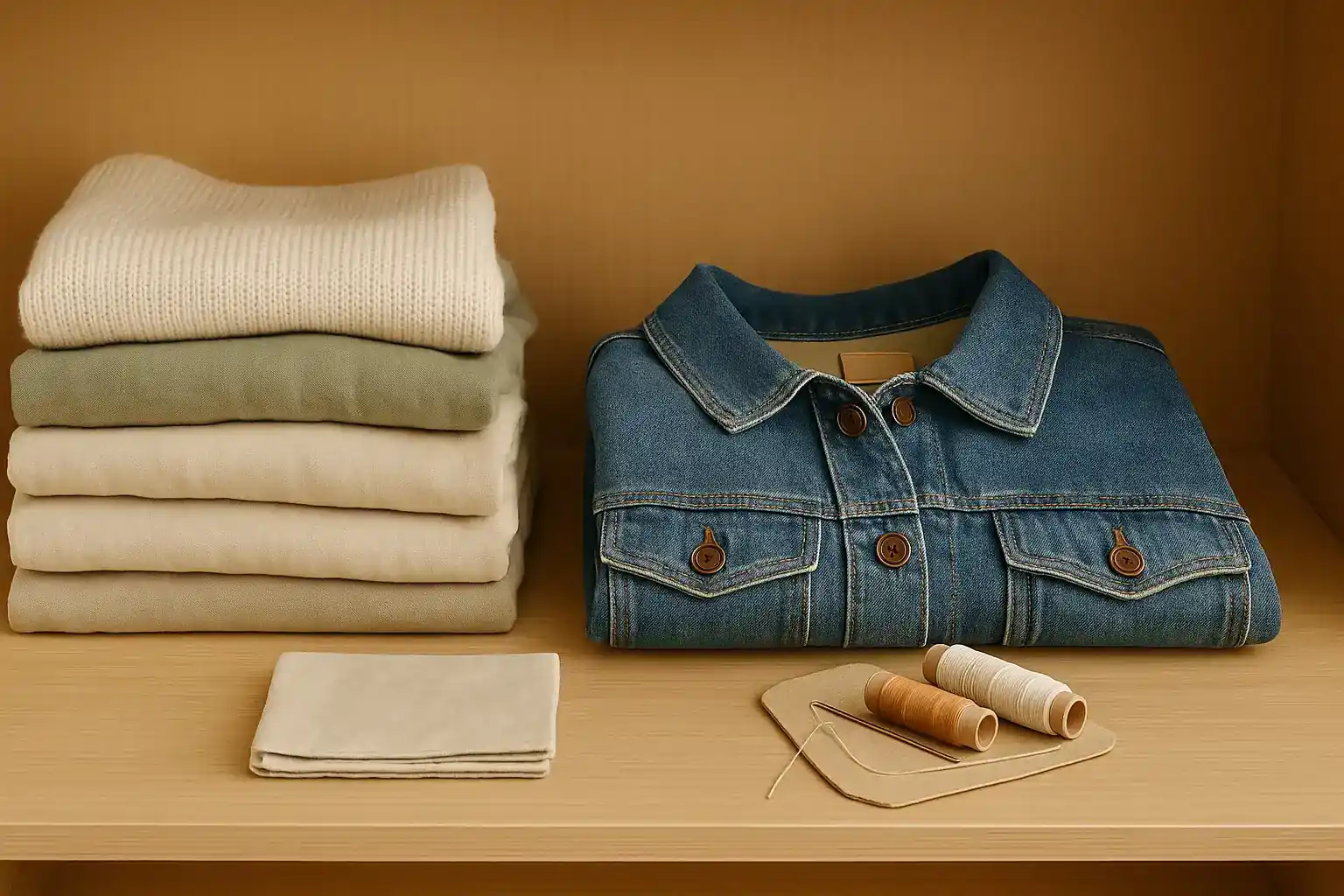
10 Transformative Wardrobe Swaps for a Lighter Environmental Fashion Footprint
Learn how to reduce your fashion footprint with impactful wardrobe swaps.
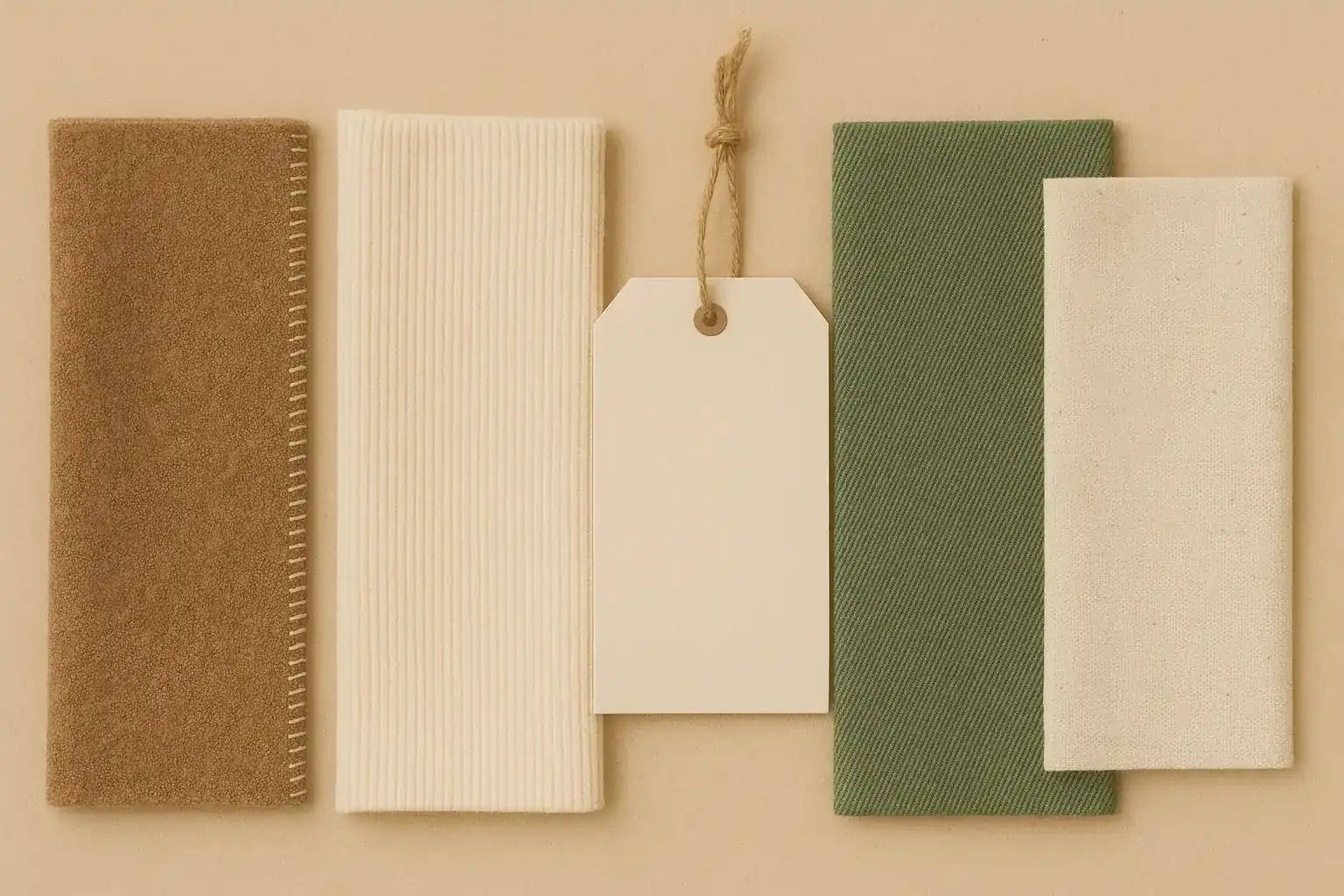
Decoding Fabric Labels: What's Really Sustainable?
Insights on decoding fabric labels in a sustainable way.

Outsmarting the Dry Cleaner: Choosing Machine Washable Naturals for a Toxin-Free Wardrobe
Avoid toxic PERC solvents by opting for machine washable organic cotton and linen clothing.
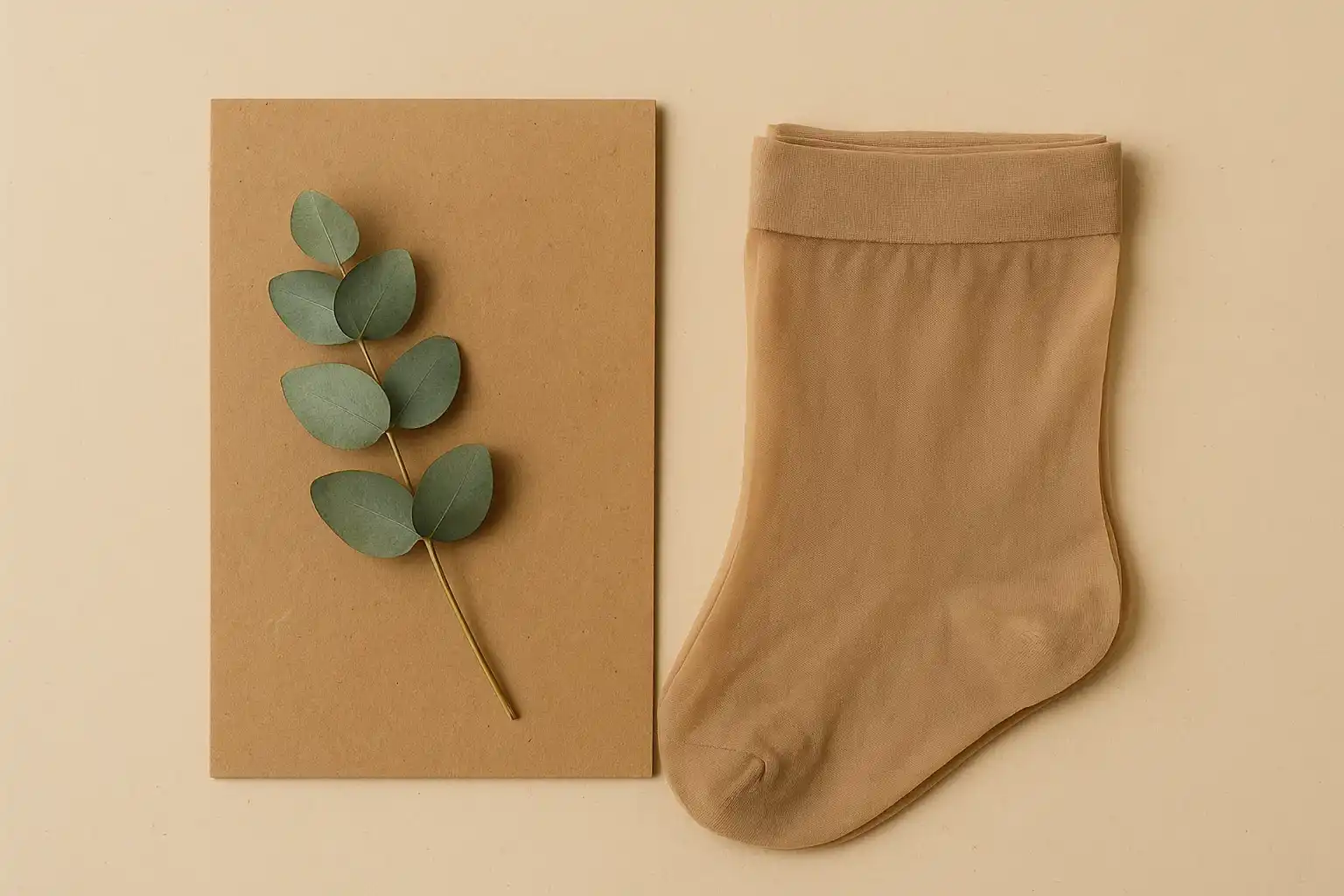
Step Lightly: Choosing Sustainable Alternatives to Nylon Stockings
Opt for recycled nylon, biodegradable, or ladder-resistant hosiery for longer wear and less waste.
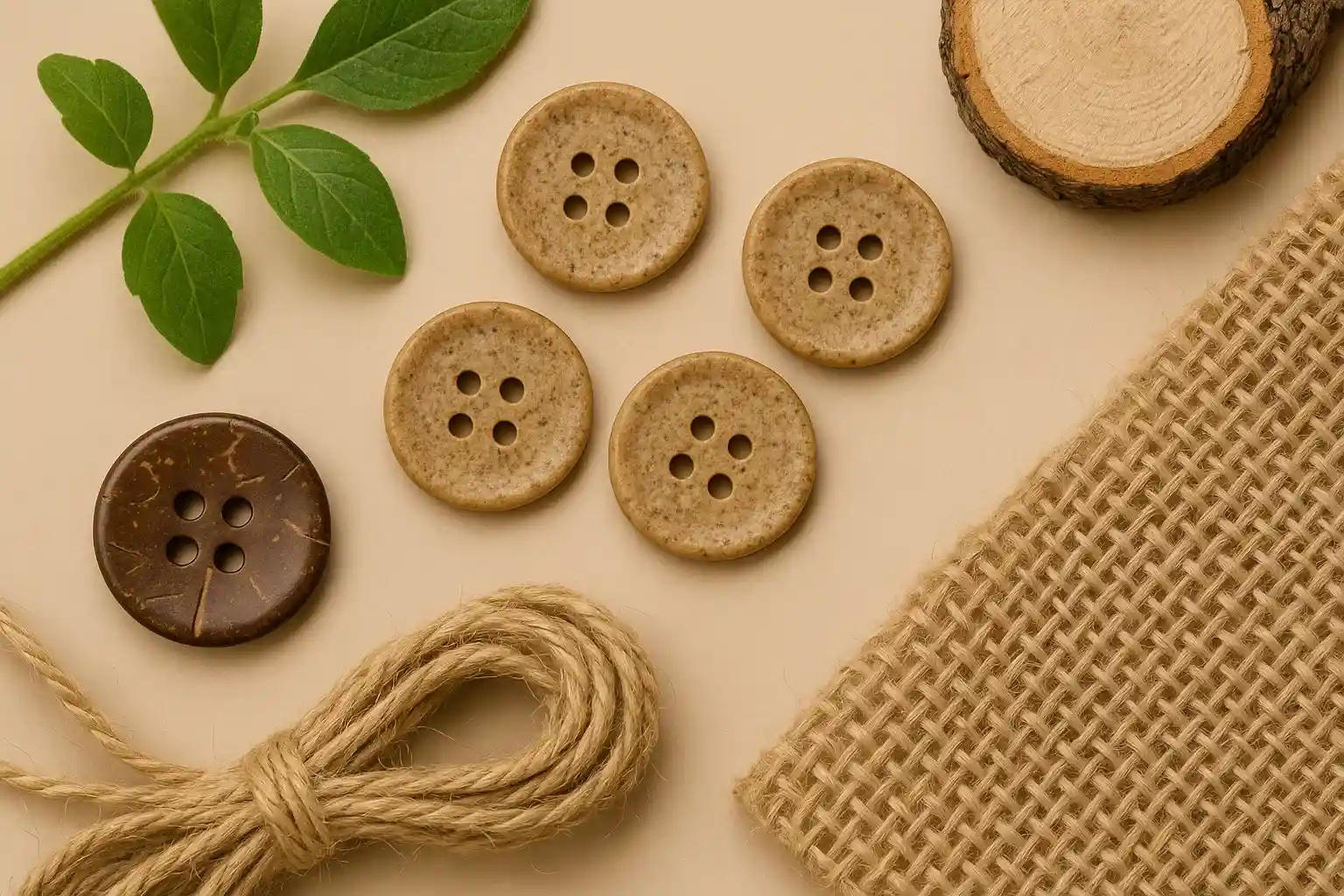
Fastening the Future: Choosing Sustainable Alternatives to Plastic Buttons
Opt for biodegradable coconut shell, corozo, or wood buttons for eco-conscious clothing.
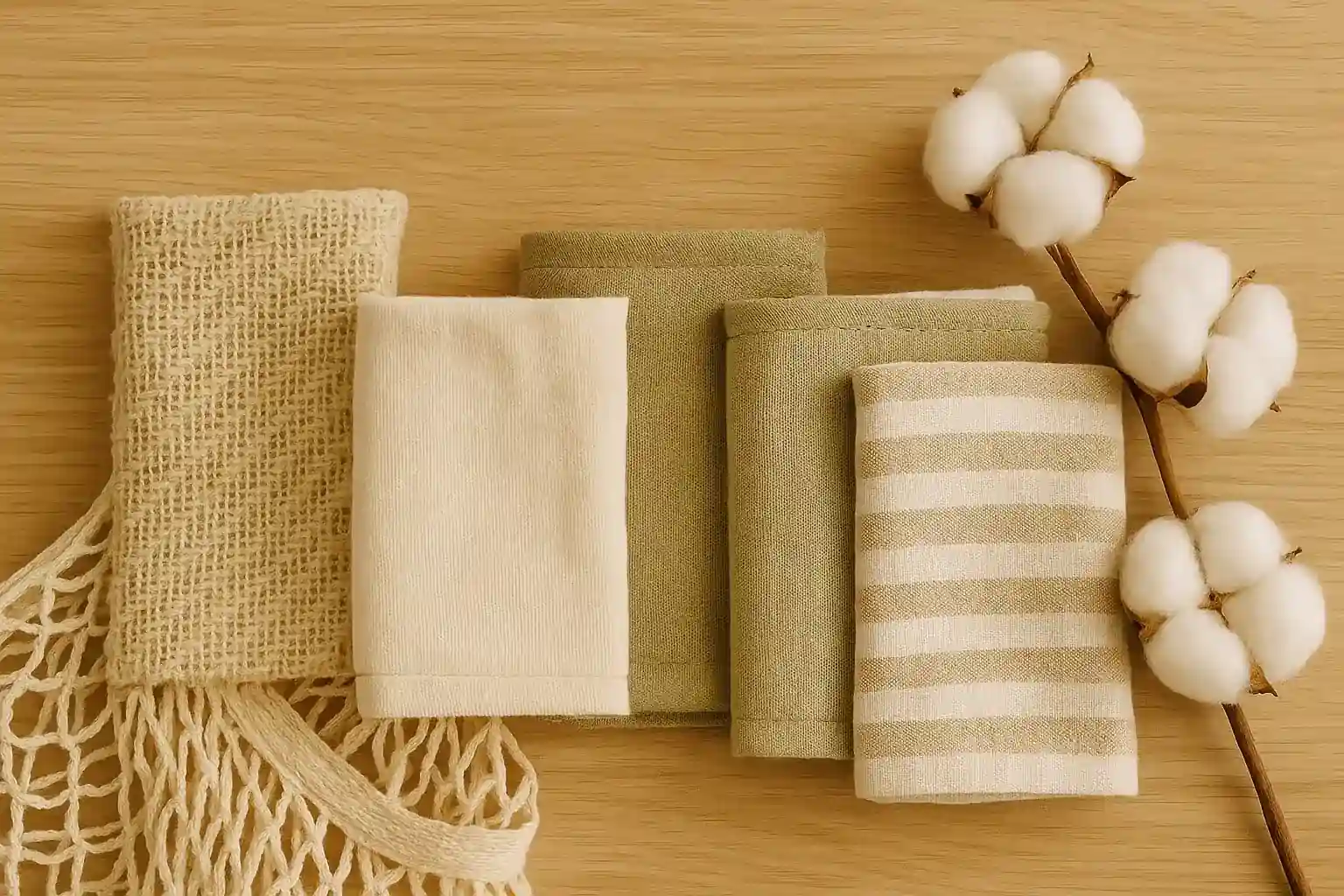
Eco-Friendly Fabrics 101: What to Look For
A beginner’s guide to identifying sustainable & low-impact fabrics.
Stay in the Loop
Get tips and insights tailored to your interests — no spam, just sustainability.